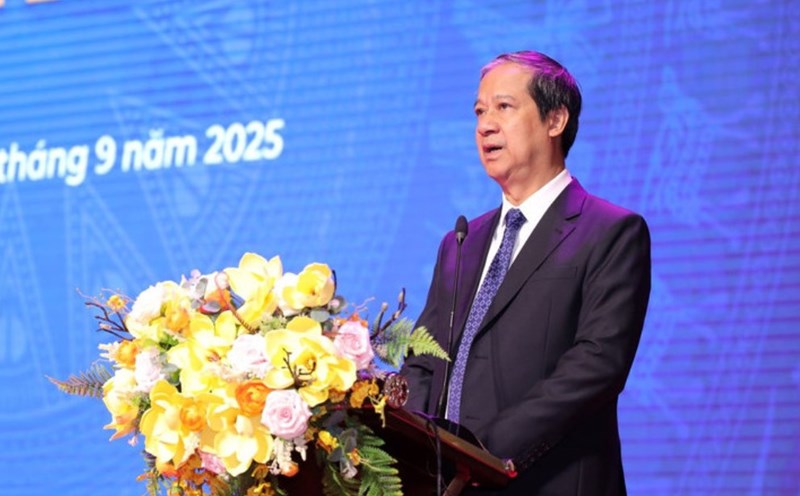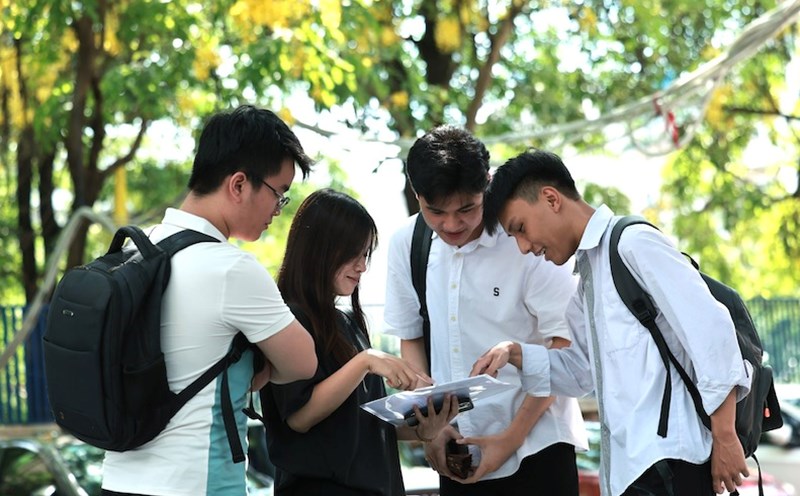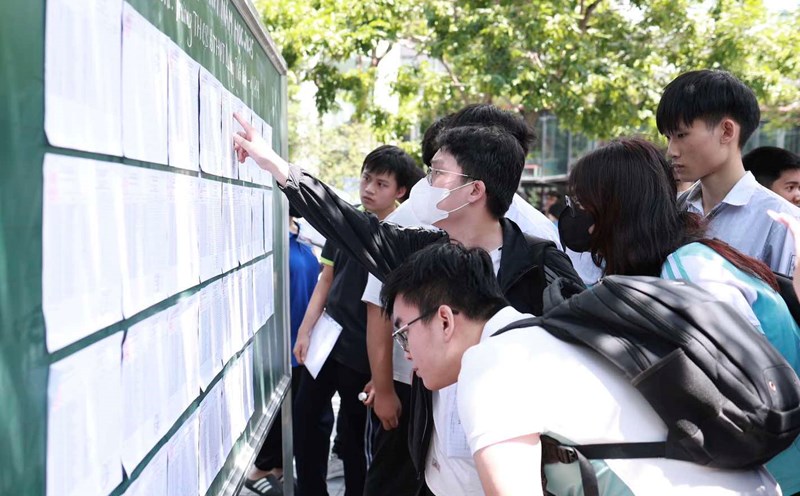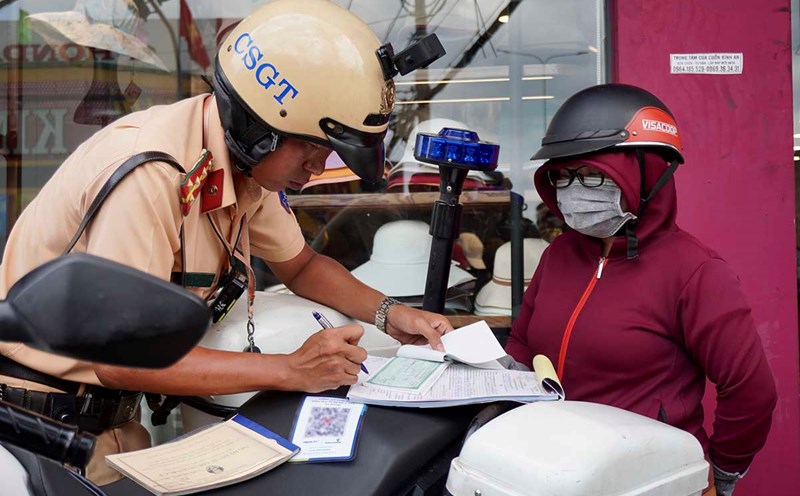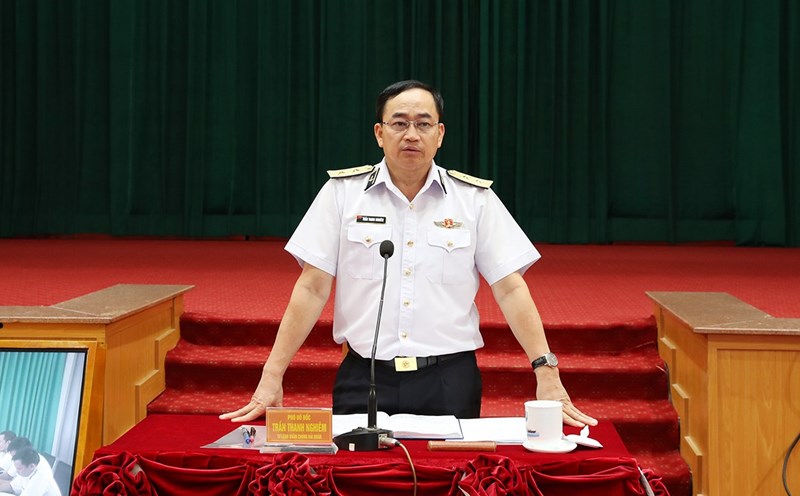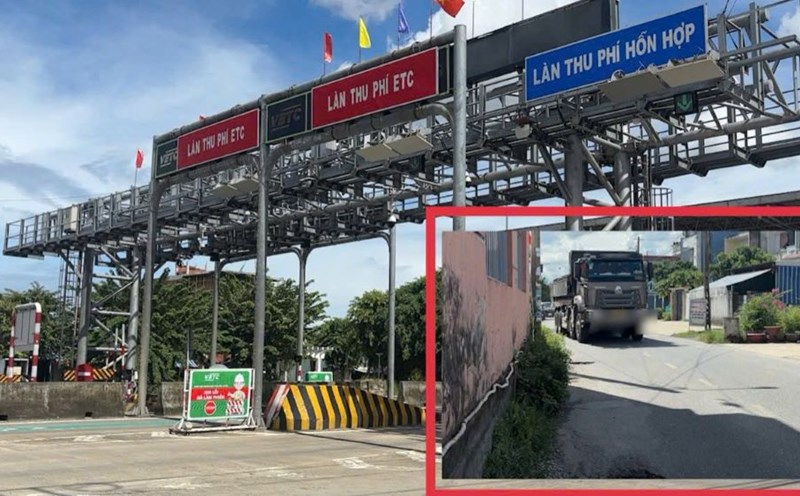On September 17, 2025, the Ministry of Education and Training (MOET) announced a draft Circular regulating the code of conduct for teachers in educational institutions on the Ministry's Electronic Information Portal to collect comments according to regulations.
Draft Circular replacing Decision No. 16/2008/QD-BGDDT dated April 16, 2008 of the Minister of Education and Training promulgating Regulations on teacher ethics (Decision No. 16.
This Circular applies to teachers performing teaching and education tasks in educational institutions in the national education system.
For teachers in schools belonging to the People's Armed Forces, implement the codes of conduct as prescribed in this Circular, the regulations of the Minister of National Defense, the Minister of Public Security and other relevant legal provisions.
The content of the code of conduct is from Articles 4 to 9 of the Draft Circular.
In particular, the general code of conduct stipulates core rules on strict compliance with the Party's guidelines and policies, the State's policies and laws; preservation of the qualities, reputation, honor, dignity, and ethics of teachers; dedication to work; teaching and education in accordance with the goals and principles of education; not taking advantage of teachers' titles, titles, images and professional activities to commit violations of the law or personal interests; preventing school violence, building a safe, healthy, friendly, democratic, innovative, creative, etc.
The general code of conduct also stipulates that teachers must not be indifferent, avoid or hide violations that occur in educational institutions; not insult or impose; not take advantage of or force parents or guardians or students to contribute money or gifts contrary to the provisions of law; correct language, be honest, respectful, friendly, cooperative, sharing; preserve and promote the cultural identity of the nation, etc.
The code of conduct for learners stipulates standard, easy-to-understand, compliments or criticisms appropriate to the subject and circumstances; correctly assess the learners' abilities; create motivation, promote the qualities and abilities, discover and nurture the talents of learners; respect and treat learners fairly; do not discriminate between learners in any form; space for deception, intentional falsification of results in enrollment activities, assessment of learners, etc.
The code of conduct for colleagues stipulates that teachers must have appropriate, honest and friendly language; respect colleagues, give suggestions to colleagues in a constructive spirit; be willing to share, cooperate, and support colleagues; do not insult, divide, or cause internal disunity, etc.
The draft Circular also stipulates the code of conduct for educational institution managers as a language of respect; comply with the assignment, direction and management of educational institution managers; actively advise and clearly express opinions to educational institution managers; strictly implement regulations on decentralization and administrative ranks, etc.
Regarding the code of conduct towards the community, the Draft Circular stipulates that teachers need to comply with and comply with internal regulations and rules in public places; promote the spirit of voluntariness and self-consciousness in participating in social activities; use personal prestige to spread human values, good deeds, beautiful images, cultural behavior in society, in schools to the community, etc. At the same time, do not organize or participate in activities that violate the provisions of law, violate national security, social order and safety; do not practice or support superstitious activities, cause division of the great national unity bloc, etc.
The draft Circular stipulates that heads of educational institutions, based on the provisions of this Circular, issue detailed codes of conduct for teachers in accordance with the practical requirements and conditions of the school; publicize codes of conduct for teachers on the website or list them on the bulletin board of educational institutions; disseminate codes of conduct to managers, teachers, learners and parents and parents or guardians; regularly propagate and thoroughly implement the content of the codes of conduct for teachers in educational institutions.
Along with that, the draft Circular also stipulates the responsibility of the People's Committees of provinces/cities directly under the Central Government and the Departments of Education and Training to promptly commend and reward organizations and individuals who have performed well and seriously and appropriately discipline individuals and organizations that violate.

